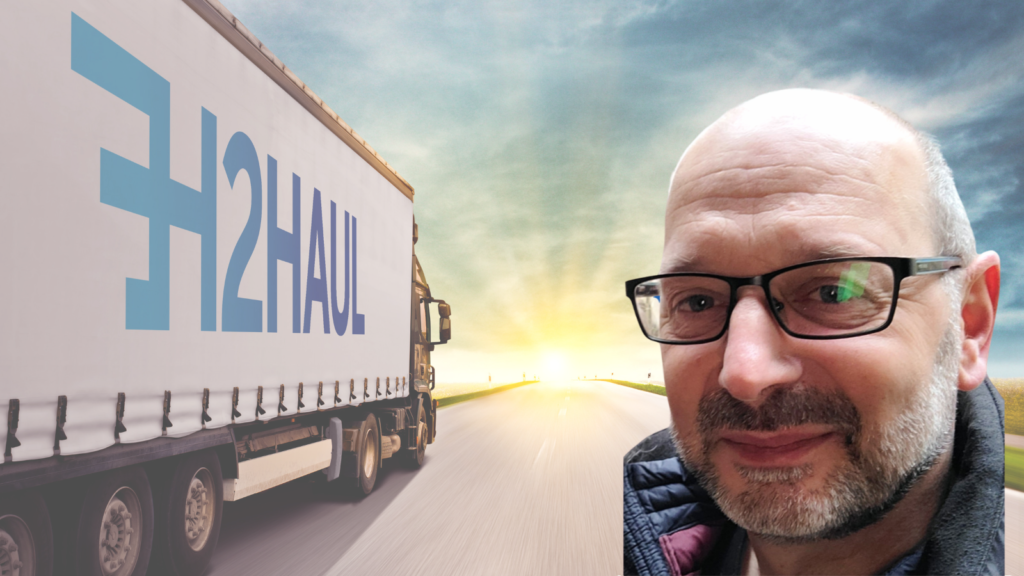Amy Allsop, Communications Officer at Hydrogen Europe, spoke to Dion Verhulst, Project Manager at VDL Groep. Dion is at the centre of the truck’s deployments in the H2Haul project, funded by the Clean Hydrogen Partnership, and spoke to us about this innovative project and VDL’s involvement in it.
AA: Many projects are dealing with hydrogen mobility. Why does H2Haul stand out?
DV: H2Haul stands out specifically for the preparation of zero-emission heavy-duty transport. This preparation has been split up into monitoring the provision of hydrogen at the refuelling stations, exploiting the heavy-duty vehicles in different logistic concepts, organising the service and maintenance since former concepts require other specialisation and safety regulations in their workshops.
Important though is that the hydrogen production process will be done cleanly, so the complete chain from well to wheel is green. For example, an H2Haul partner in Switzerland is generating hydrogen with hydropower.
AA: Hydrogen has been in the spotlight lately. So how does it feel to be part of this road to the decarbonisation of Europe?
DV: It feels great to be a part of this vehicle powertrain development program. Because I have a background in automotive technology and know the history of the old vehicle concepts very well, I am now working on the transition to electrically powered heavy-duty vehicles since 1999. The time for rigorous changes has come. So, I’m sure that decarbonisation is important for my children and theirs. It makes me feel good to contribute to this development and contribute to a clean future for everyone.
AA: VDL has developed a hydrogen fuel cell truck under the H2Share project. How was the experience driving this zero-emission vehicle?
DV: As part of the H2Share programme (Hydrogen Solutions for Heavy-duty transport Aimed at Reduction of Emissions in North-West Europe), VDL has built a hydrogen power train for a distribution truck. The European Union funded H2Share under the European Regional Development Fund for Northwest Europe, known as “Interreg”.
The driving experience is like an electric truck, strong, responsive, and easily dealing with traffic situations in cities and rural areas. With the extra range provided by the hydrogen fuel cell, you will get a comfortable feeling on your trip.
Of course, there is experience in service and maintenance. Over the last years, we see that field service engineers prepared themselves to work with and on electric vehicles and hydrogen. Also, part of the goals is to modernise these services.
AA: What are the next steps for VDL within the H2Haul project?
DV: The next steps for VDL are to test the vehicles extensively. This will be done together with partners Plastic Omnium, Colruyt and Sphera.
Technically the vehicles will be commissioned with the fuel cells. The certification and homologation will be done in cooperation with TÜV Rheinland.
When the vehicles are registered, and the hydrogen refuelling station is operational, we can start the test on the logistic concept where VDL assists in exploitation. Together with Colruyt, we provide data for Sphera on the vehicle, trip, and refuelling station data points, for extensive analysis.
